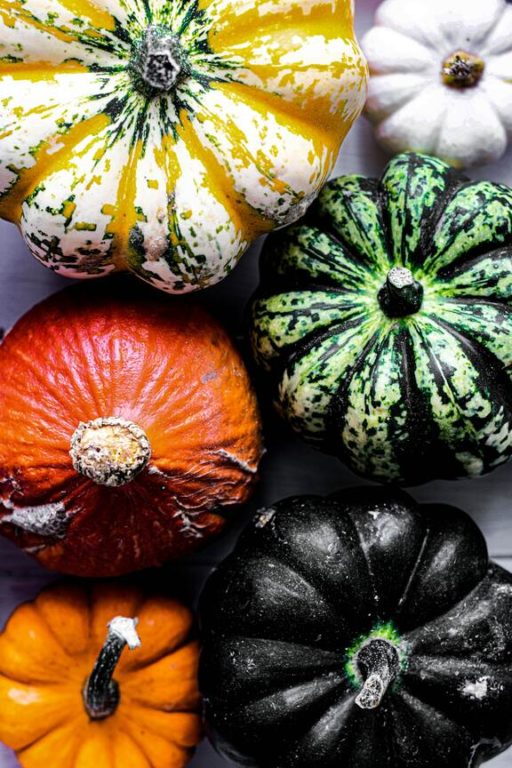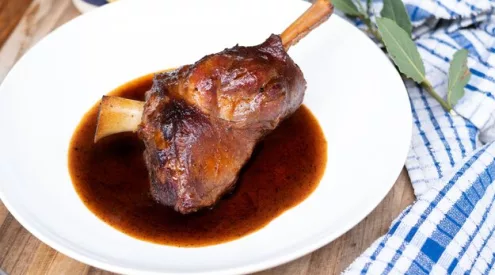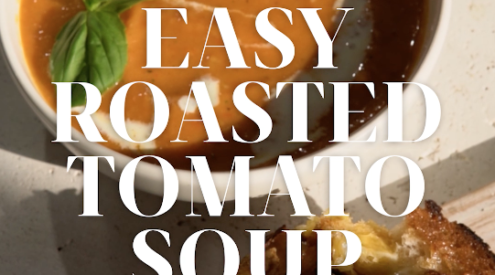South African food is truly unique with more and more international chefs looking to Mzansi to find out the latest food trends.

We are, after all, the country who took Malva pudding international. As a result, recipes for this South African delicacy now feature in cook books and websites all across the world.
‘Our country is home to so many flavourful dishes,’ notes Chef Norman Heath of Raddison blu Hotel waterfront. ‘Each of them developed with unique stories behind what made them trend before they became set in stone as local favourites.’
A nice example is the story of how Bunny Chow became a countrywide sensation. It is said that the meal started trending in Durban in the 1940’s. When migrant workers of Indian descent, needed a less messy way to take curry to work for lunch. Therefore they started hollowing out half loaves of bread and filling it with their saucy curry. Today, the bunny chow is a must-try for anyone who visits Durban.
What’s next in trending foods for South Africa? We spoke to chefs from Raddison Hotel Group and here’s what they had to say.
Charcoaled fruit & Veg

Chef Norman explains: ‘We love an excuse to braai and with load-shedding having become a normal fixture again, the trend is to have starters, desserts, breakfasts, lunches and, supper made on the braai.’
Charcoaled or blackened fruits and vegetables are cooked from the outside in by wrapping them in foil or cooking naked before immersing underneath hot charcoal until caramelised, blackened and cooked.
Favourites to try this with are whole pumpkin, watermelon, or vegetables from the gourd family.
Below he shares the recipe for his famous Charcoaled Pumpkin:
The 1st step is the easiest, all you’ll need is 1 large pumpkin. Wrap it in foil and place on the braai coals or wood for 1 and a half hours. Remove from fire, crack open and enjoy as desired or for breakfast lunch or dessert using the following variations.
Breakfast:
- Take 250g of pumpkin
- Mix it with 40g of cooked oats
- Add cinnamon, nutmeg, clove and ginger to create the pumpkin spice
- Then proceed to add sugar, butter and milk to taste
Lunch/Supper:
Ingredients:
- Charcoaled pumpkin
- Feta
- Spinach
- Chickpeas
- Brown rice
- Salad Dressing
- Cucumber
Method:
- Place 500g of charcoaled pumpkin with removed skin into bowl
- Add fresh spinach and feta
- Chop cucumber and add into bowl
- Add chickpeas and cooked brown rice
- Finish off by topping with any salad dressing of your choice
Desert:
Ingredients:
- 1/2 Charcoaled pumpkin
- Tub of Ice cream
- Roasted pumpkin seeds or roasted nuts
- Salted caramel sauce
Method:
- Take one half of charcoaled pumpkin
- Place it on the dessert dish
- Place 500ml of Vanilla Ice cream on top of the pumpkin
- Top the pumpkin with roasted pumpkin seeds/Roasted nuts and salted caramel sauce
- Serve as is, sharing style with multiple spoons
Old School comfort desserts on a smaller scale

All rules are meant to be broken, says this latest food trend and, in particular, the rules for how to experience traditional South African desserts. Who said the rules for milk tart are that is has to be an actual big tart?
‘Healthier eating and calorie conscious foodies are finding ways to enjoy South African favourites like malva pudding, koeksisters and milk tart by making mini versions that beat the craving in a healthier way,’ says Chef Vonique van Zyl of Raddison Blu Hotel Gautrain. ‘Think Koeksister bites, mug-microwavable malva and miniature milk tarts. To be enjoyed in moderation of course.’
Mini Milk Tartlets Recipe:
Ingredients:
The Pastry:
- 125g butter
- 2 cups of flour
- 1 tsp baking powder
- 1 whole egg
- 1 tsp vanilla essence
- 75ml milk
- Spray and cook – for spraying mini cupcake pan
Milk Tart Custard Filling:
- 750ml milk
- 2 tbsp butter
- 4 eggs – separated
- 375ml water
- 1 cup sugar
- 1 tsp vanilla essence
- 1/2 cup of maizena (Corn Starch)
- Ground cinnamon for dusting
Method:
The Pastry:
- Preheat your oven to 180c
- Combine butter and flour in a food processor or mixer
- In a separate bowl mix egg, milk, and vanilla essence
- Add your egg-milk mix to the flour-butter mix in the food processor until a soft dough is formed
- Roll your dough out between 2 pieces of baking paper or on a floured surface
- Cut circles out with a small round cutter or glass if you don’t have a cutter, and place in a greased mini cupcake pan
- Poke holes into the base of each pastry cup and bake for 20 – 25 minutes
- Once your tartlets have baked, allow them to cool down. Once cooled down they can be removed from the moulds.
Milk Tart Custard filling:
- In a large saucepan, add milk, sugar and butter before letting it simmer
- In a large bowl or mixer whisk the maizena, egg yolks and water until a smooth mixture is created and is free from any lumps
- Beat the egg whites until stiff peaks form, put aside
- Add your egg yolk and maizena mix to the heated milk mix and continue whisking
- The mixture will start to thicken
- Once this happens, remove the saucepan from the heat and whisk in beaten egg whites
- Pour the thickened custard into a tray or container and let it cool
- When the custard has cooled down completely, scoop into a piping bag with a nozzle of your choosing and pipe into the baked tartlet cases
- Dust with ground Cinnamon
Every grain of bread is our daily bread

Every type of bread was trending during lockdown as South Africans spent more time at home, finding baking as a popular pastime to enjoy.
‘As the costs of basic ingredients like flour and even everyday bread go up, people are looking at whichever grains are in the cupboard to use for everyday staples,” says Chef Slobodan Stefanicic of Radisson Blu Hotel Sandton. ‘The trick is to experiment with the same bread recipes over and over again using different variations of South Africa’s local grains like sorghum, mielie meal or mabele meal. Essentially, whatever is in the cupboard. Sorghum, mielie meal and mabele meal are gluten-free and therefore a great choice to be enjoyed by everyone.’
Others to try include barley, sorghum, whole wheat or any flour or meal to create bread loafs, dombolo or pap.
Sorghum Dombolo Recipe:
Ingredients:
- 600g flour
- 500g sorghum
- 2.2 tbsp salt
- 3.2 tbsp sugar
- 4.4 tbsp margarine
- 5 x 10g anchor yeast sachets
- 2 ½ cups lukewarm water
Method:
- In a mixing bowl , mix flour, salt, and sugar together
- Add margarine and rub into the flour with your fingertips
- Add anchor yeast and mix
- Add enough lukewarm water to the flour mixture to form a soft dough making sure the dough does not get too stiff
- Knead the dough for 10 minutes until soft and elastic
- Cover with plastic wrap and let it rest for 5 minutes
- Place into a large, greased enamel dish and cover with greased plastic
- Allow to rise in a warm place until double in volume, about 25 to 30 minutes
- In the meantime preheat your steamer oven 96 degrees
- Once the dough has risen in the dish transfer in to the big bain marie and cover with foil
- Place in the oven on steamer, to steam for 1 hour and 30 minutes
- Carefully take dombolo out of the steamer, remove foil and place onto a cooling rack
- Allow to cool for 5 minutes before slicing
- Serve with your favourite stew
Pictures: Supplied
ALSO READ: Easy Mogodu Recipe | Tripe





















